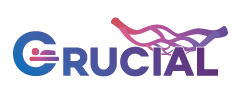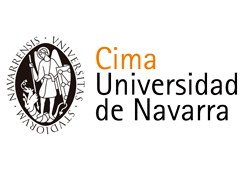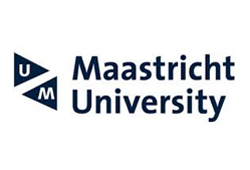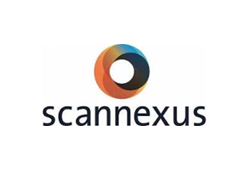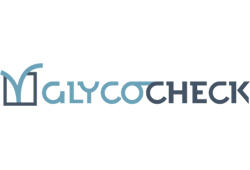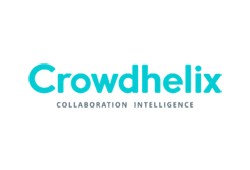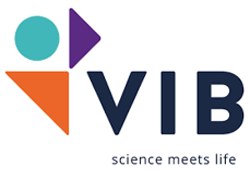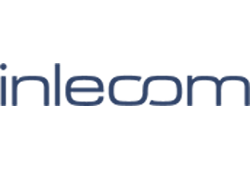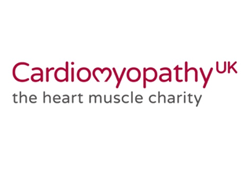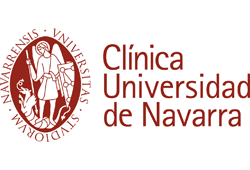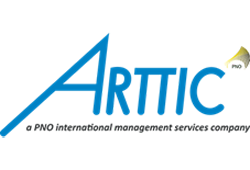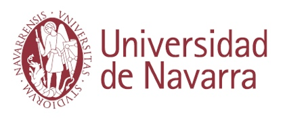The CRUCIAL consortium
The consortium brings together 12 partners from multiple fields (clinicians, fundamental scientists, scientific SMEs, exploitation and dissemination SME, management SME, and a patient advocacy), representing 7 different countries. We aim to address a difficult problem regarding how co-morbidities give rise both to mental disorders and non-mental disorders. In order to achieve this, we have assembled a consortium that has a balanced mix of skills on several levels. It consists of fundamental scientists and clinicians. It consists of specialists in neuroscience (UM, Scannexus) and in cardiovascular science (UCL, UNAV, FIMA, GlycoCheck, KU Leuven, VIB). The clinical scientists are strong leaders in the field of MRI (UCL, UM, UNAV, Scannexus), whereas the fundamental partners have strong skills in molecular biology and genetics that will allow them to develop new biomarkers and identify new pathways for pharmaceutical targeting (FIMA, KU Leuven, VIB). Beyond bridging fundamental research and clinical applications, the project also combines several state-of-the-art technical approaches to answer the research objective. This includes cell signalling, (single cell) RNA-Seq, metabolic assessments, microvesicle’s biomarker identification, GlycoCheck measurements, and advanced imaging (MRI, 2-photon and light sheet microscopy).

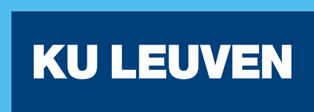
KATHOLIEKE UNIVERSITEIT LEUVEN (Belgium)
KU Leuven boasts a rich tradition of education and research that dates back six centuries. The university’s basic research orientation has always been and will remain fundamental research. At the same time, the university remains vigilantly open to contemporary cultural, economic and industrial realities, as well as to the community’s needs and expectations. From a basis of social responsibility and scientific expertise, KU Leuven provides high-quality, comprehensive health care, including specialised tertiary care, in its University Hospitals. In doing so it strives toward optimum accessibility and respect for all patients.
KU Leuven is currently by far the largest university in Belgium in terms of research funding and expenditure (EUR 475 million in 2017) and is a charter member of LERU. KU Leuven conducts fundamental and applied research in all academic disciplines with a clear international orientation. In the Times Higher Education ranking KU Leuven is ranked as the 21st European university, while in the Reuters Top 100 of the World’s most innovative institutions, KU Leuven is listed as the first European university. In Horizon 2020, KU Leuven currently has been approved more than 400 projects and is ranked fifth HES institution with regard to number of signed grants (353).
KU Leuven employs 7,296 researchers on its academic staff. To strengthen international collaboration, KU Leuven has its own international research fellowship programme and supports international scholars in international funding applications. KU Leuven Research & Development (LRD) is the technology transfer office of the KU Leuven. Since 1972 a multidisciplinary team of experts guides researchers in their interaction with industry and society, and the valorisation of their research results (e.g. 124 spin offs).
https://gbiomed.kuleuven.be/english/research/50000635/jones-lab-group

FUNDACION PARA LA INVESTIGACION MEDICA APLICADA FIMA (Spain)
The Centre for Applied Medical Research (CIMA), located at the biomedical campus of the University of Navarra (https://cima.unav.edu/en/), aims at discovering new disease mechanisms and potential therapeutic targets, identifying and validating new diagnostic biomarkers, and developing therapies for diseases that pose major unmet medical needs. Major focus research areas are oncology, hematology, hepatology, neurosciences, cardiovascular diseases, regenerative medicine, immunology and immunotherapy and gene therapy. The scientific research programmes and platforms include international multidisciplinary teams of professionals who work together with the Clínica Universidad de Navarra and the other schools and centers of the University of Navarra and of the Healthcare Research Institute of Navarra (IdISNA). CIMA is committed to being at the forefront of biomedical research in an environment of open innovation. To this end, it has signed partnership agreements with universities, technology centers, businesses, foundations, and other national and international bodies.
The Program of Cardiovascular Disease focuses on the study of chronic heart failure, atrial fibrillation and vascular pathologies related to ischemic cerebral events and peripheral artery disease, with the triple objective of : understanding the mechanisms through which the ventricular myocardium, atrial endocardium and arterial wall are damaged in processes involving heart failure, atrial fibrillation and stroke; Developing non-invasive biomarkers for the early detection of the lesions caused by these mechanisms, with diagnostic and preventive usefulness in these processes; Identifying novel relevant therapeutic targets related to the pathophysiological mechanisms involved in these pathologies and designing new drugs for more their effective treatment.
The Program is part of the “Cardiovascular and Renal Diseases Area” of IdiSNA and it also belongs to the Spanish Network for Biomedical Research Centres in Cardiovascular Diseases (CIBERCV) financed by the Instituto de Salud Carlos III. It has also participated in several multinational research consortia within the European Commission FP6, FP7 and H2020 initiatives. Finally, it is also involved on joint research projects with academic centers and biotech and pharmaceutical companies in Spain, other European countries and the United States.
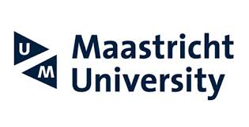
UNIVERSITEIT MAASTRICHT (Netherlands)
UM, established in 1976 and the youngest of the 13 public universities in the Netherlands, is one of the best performing young universities in Europe, ranking 5th in the latest Times Higher Education World University Ranking 100 under 50 years old. Almost half of the student population and a third of academic staff at UM is non-Dutch, making UM by far the most international university in the Netherlands, and indeed among the most international universities on the European continent. The Faculty of Health, Medicine and Life Sciences (FHML) of the UM works closely together with the University Hospital Maastricht (azM) and together they form the Maastricht University Medical Center (MUMC) (https://hersenenzenuwcentrum.mumc.nl/).
One of the translational research programs at MUMC is related to the vascular contribution to neuro-degeneration / cerebral small vessel disease. This research is done in close collaboration between the School for Mental Health and Neuroscience (MHeNs; https://mhens.mumc.maastrichtuniversity.nl/ ) and the School for Cardiovascular Diseases (CARIM; https://www.carimmaastricht.nl/).
The principal focus of MHeNs is to conduct high-impact translational neuroscience research on neurological and psychiatric illness as well as mental health, and to provide state-of-the-art education to Master and PhD students. To this end, MHeNs brings together basic and clinical neuroscience domains in translational focus areas and expert groups. This enables maximum synergy between research groups across its current three divisions, optimizing the use of available expertise, and forging alignment of animal models and human research projects. MheNs is the coordinator of the European Graduate School of Neuroscience (EURON; www.euronschool.eu), a research and training network of 8 universities in Belgium, Germany, France, Luxembourg and the Netherlands.
CARIM is a leading research institute in the field of cardiovascular disease. At CARIM, basic mechanisms as well as early diagnosis and individual risk stratification of cardiovascular disease are studied, allowing faster translation of new research concepts to clinical practice. All research divisions within CARIM involve basic as well as clinical programmes. Cardiovascular scientists from around the world join CARIM because it values open communication, close cooperation, stiff ambitions, good facilities and a critical learning environment.
The project team at UM / MHeNs/ CARIM has ample experience in the design, coordination, analysis and reporting of clinical studies related to cerebral small vessel disease (cSVD) and vascular cognitive impairment (VCI) and hosts expertise on advanced neuro-imaging and the validation of MR perfusion techniques. Also, the UM team has ample experience in cognitive animal research and basic neuroscience which includes among others tissue processing, cell culturing, immunohistochemistry, proteomics and genomics.

BRAINS UNLIMITED B.V. – TRADE NAME SCANNEXUS (Netherlands)
Scannexus is an Ultra-High-Field MRI centre.
Scannexus facilitates researchers, clinicians and industry in formulating and answering their research questions. They offer a combination of state-of-the-art clinical imaging technology and expertise in MRI operations and development, experimental designs and data analysis. Through this, they provide a full support package for imaging-related research.

UNIVERSITY COLLEGE LONDON (UK)
UCL is the top-rated university in the UK for research strength (Research Excellence Framework (REF) 2014), 10th in the world (QS World University Rankings 2019). 29 Nobel Prizes have been awarded to people who are, or were, students or academics at UCL UCL staff and students come from over 155 countries. 2nd highest number of Professors in any UK university with 1,005 professors among our academic staff; the average for the Russell Group (2016/17) was 516. In REF 2014, UCL was the UK’s largest biomedical research organisation (1,100 FTE), ranking #1 for research power and impact, and #1 in each of Population Health, Clinical Medicine and Computer Science. In the 2016 UK RAND analysis of highly cited publications, UCL ranked #1 overall, #1 in Medical Informatics and #2 in Cardiovascular Science. In 2016, UCL had a Shanghai ranking of #7 globally and #2 in Europe, for Clinical Medicine.
Based in the UCL Faculty of Population Health Sciences, the UCL Institute of Cardiovascular Science brings together basic and clinical scientists from UCL and expert clinicians from UCL partner hospitals. The Institute currently has 200 staff, clinical fellows and PhD students across 4 research departments and is funded by the British Heart Foundation (BHF), National Institute for Health Research (NIHR), Medical Research Council (MRC) and other research councils and charities.
The Institute of Cardiovascular Science (ICS) has >130 staff, an annual income of >£15M, a 6 member professional services team with an administrative centre in UCL’s Bloomsbury Campus, co-located with BCCP, built with £2M investment from UCL, UCLH Charity and the UCLH NIHR BRC. ICS has four research departments: Fundamental Science (incorporating the Hatter Cardiovascular Institute and BHF Laboratories in the Rayne Building), Children’s Cardiovascular Diseases (located at GOSH), Clinical Science (embedded at the Barts Heart Centre), and Population Science and Experimental Medicine (located at Chenies Mews, Torrington Place and Euston Road). In 2019, Children’s Cardiovascular Diseases will occupy the new Cardiology Suite at the UCL-Great Ormond Street Zayed Research Centre for Children’s Rare Disease, built with a £60M donation from Her Highness Sheikha Fatima bint Mubarak, £10M from HEFCE and £13.7M from UCL and GOSH Charity. Also in 2019, >£0.65M university and MRC co-investment will see LHA move into refurbished offices at Torrington Place, coalescing all UCL’s population cohort research.
UCLPartners Academic Health Science Centre (covering 23 hospital trusts, 9 other health education institutions, and 20 community care groups, caring for 6 million people), led a service re-organization across UCLH, Barts Heart Centre (BHC; Europe’s largest specialist Cardiology centre), Royal Free, Moorfields Eye Hospital and Great Ormond Street Children’s Hospital.

GLYCOCHECK BV (Netherlands)
GlycoCheck B.V. is the leading provider of imaging and measurement software of the endothelial glycocalyx layer. GlycoCheck technology is a complete microvascular imaging solution. It includes the patented GlycoCheck software installed on a dedicated laptop or all-in-one computer. It’s optimized to run the GlycoCheck software application. It comes with a digital intravital microscopic video camera with disposable sanitary tips. The technology measures and monitors changes in the glycocalyx layer non-invasively, accurately, and in real time. The software generates a report and records historical changes in glycocalyx, capillary function, and microvascular blood flow for each patient.
GlycoCheck is currently being used by healthcare practitioners, and for clinical studies in more than 85 hospitals, and universities in Africa, Asia, Australia, China, Europe, Japan, Russia, and the United States. The studies focus on the relationship of the health of the endothelial glycocalyx and its implications for microvascular health in diabetes, kidney disease, cardiovascular disease, vascular dementia, preeclampsia, sepsis, and many other conditions. There is a long list of peer-reviewed published papers using GlycoCheck at http://glycocheck.com/published-papers/.
GlycoCheck was developed in the Netherlands at the Cardiovascular Research Institute of Maastricht University (CARIM) by Hans Vink, PhD and his team. GlycoCheck has been awarded patents in the U.S., EU, China and Japan, with more patents pending worldwide.
The glycocalyx is perhaps the most important system in the body. The microvascular system provides nutrients to organs and removes waste. Within every blood vessel is a naturally occurring, gel-like lining called the glycocalyx. This gel-like lining helps all blood vessels protect themselves from molecular structures sticking to the vessel wall within the normal range, and plays a decisive role in the early stages of cardiovascular and a number of other diseases that arise when the glycocalyx deteriorates.
Learn more at GlycoCheck.com.

CROWDHELIX LIMITED (Ireland)
Vision2020: The Crowdhelix Network (CH) is a pan-European Open Innovation Network that enables Research Technology Organisations (RTOs) and businesses to collaborate, innovate and grow. The network has more than 400+ member organisations from 42 countries and is present in all EU Member State countries. The network membership is reported to have won more than 2.5 billion euros of funding under Horizon 2020, highlighting the quality of its membership base.
The network is structured around virtual technology clusters known as Helixes. There are currently 18 live Helixes in areas such as Digital, Health and Energy etc. The network hosts focused collaborative events for each Helix each year where the aim is to connect organisations across Europe and promote collaboration and open innovation.
In addition to hosting and running events, CH also has its own technology tool called: Crowdhelix. The tool is designed so people and organisations can profile their expertise and capabilities within a Helix area. It is then used to help organisations post opportunities, which are matched to people’s profiles within the platform. Once a match is made the CH team then help to facilitate an opportunity so that it then turns into a tangible collaboration.
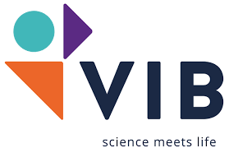
VIB VZW (Belgium)
The host institute VIB (Flanders institute for biotechnology, http://www.vib.be), is a top class centre of excellence with more than 1470 researchers and technicians involved in 74 research groups, carrying out research on the frontline of life science. The research groups and established technological VIB core facilities are located at state of the art facilities at the campuses of the 4 Flemish universities. Research at VIB is focused towards the fundamental understanding of molecular mechanisms of growth, normal development and diseases. Major focus areas are oncology, immunology, neurobiology & neurodegeneration, molecular microbiology and medical biotechnology. VIB is an international research institution employing scientists of more than 60 different nationalities. In addition, VIB has a strong international research network that places great value on international career experience and attracts on a regular basis group leaders and post-doctoral fellows from different corners of the world. VIB was awarded the ‘EU Excellence in HR’ label in 2013: coaching & mentoring/career guidance/responsible research/women in science are top priorities in VIB’s HR strategy.
The Laboratory of Angiogenesis and Vascular Metabolism is one of the 12 research groups within the VIB Center for Cancer Biology (CCB, https://www.vibcancer.be/peter-carmeliet). The long-term objectives of the lab are to better understand the molecular basis of the formation of blood vessels (angiogenesis) in health and disease, and to translate relevant findings into therapeutic concepts. All of the infrastructure necessary to perform the proposed study is available at the CCB, including computer infrastructure and server storage facilities. There are several core facilities, led by dedicated and well-trained personnel experienced in specific expertises. The Carmeliet lab encompasses or has access to core facilities providing knowledge in: (i) isolation of endothelial cells, (ii) cell culture and functional angiogenesis-related assays, (iii) genetic manipulation & transgenic mice, (iv) histology & imaging, (v) the production of vector constructs and viruses, (vi) metabolomics profiling (LC/GC-MS) and metabolic assays; (vii) sequencing technology, (viii) single cell sorting and multi-colour flow cytometry (https://vibcancer.be/corefacilities).
INLECOM INNOVATION ASTIKI MI KERDOSKOPIKI ETAIREIA (Greece)
INLECOM is a European SME with offices and consultants in Brussels, Ireland, London, Spain and Greece. Originally established in 1996, with the seminal charter of promoting innovative Information and Communication Solutions, INLECOM has since expanded upon these foundational competencies over the last 20 years. Today INLECOM are an established Management Consultant leader in Digital Ecosystem Platforms & Technologies in domains such as Transport & Logistics, ICT, Healthcare, IoT, Cognitive Computing, Social Software, Cloud, Analytics, Big Data, Mobile Computing and Security. With an international team of experts in the areas of Mobility, Business Consulting, Commercialisation, EU PO and USPTO Patent Filings, Solutions and Business Analytics, INLECOM provides strategic knowledge-centric solutions and consultancy to help private and public organisations use their unique capabilities to create or strengthen their competitive advantage. Some of the core competencies include:
- In Management Consulting: Business Processes Improvement and Transformation, Risks Management, Governance, Compliance, New Business Models, Innovation Management & Patent Filings, Commercialisation, Market Analyses, Feasibility Studies, Business & Go-To-Market Plans.
- In Analytics and Integration: Business Analysis, Business Modelling, Key Performance Indicators and Analytics, B2B and B2G integration, Information Exchanges, Message Exchanges Standards
- In Systems and Information Architectures: Public/Private/Hybrid Cloud Solution Architectures for Big Data, including innovative business intelligence, big data analytics, data mining.
INLECOM is dedicated to research and innovation in cross cutting domains that address policy, strategy, regulatory, policy, operational excellence, commercialisation and IP protection. Currently INLECOM is the coordinator of four high profile H2020 projects, CHARIOT, Track & Know, ICONET and SELIS, directly aligned with the company’s strategy.
Website: https://www.inlecom.eu/

CARDIOMYOPATHY UK (UK)
Cardiomyopathy UK is the national UK charity for people affected by cardiomyopathy and myocarditis. The charity provides a range of support and information services, undertakes national awareness campaigns, supports research, provides healthcare professional training and works to improve access to quality treatment.
The charity has an extensive database of service users (including individuals across Europe) as well as a comprehensive network of healthcare professionals. This enables the charity to promote research opportunities to patients, disseminate results and provide insight into research design.
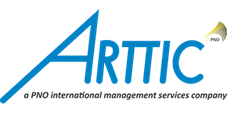
ARTTIC (France)
ARTTIC is the leading European group providing consultancy and management services to international technology-related partnerships. ARTTIC provides services related exclusively to the set-up and management of European RTD collaborations, and has expertise in Security, IT, telecommunications, transport, education, health, bio-technologies, automotive industry, aeronautics, industrial technologies, new materials and microelectronics. The company has been successfully managing large-scale RTD projects since 1987, including more than 100 large RTD projects and networks during previous framework programmes. ARTTIC staff has extensive experience and knowledge in various R&D fields, especially in the ICT and Security areas.
ARTTIC activities are in line with the project´s management activities since ARTTIC will support the consortium in the daily management and administrative tasks to ensure the collaboration is working efficiently, the project is properly monitored and decisions and actions are prepared and taken according to the project progress. ARTTIC will provide methods, tools and operational support for the collaboration within the consortium and to simplify as much as possible the work of the R&D staff.
